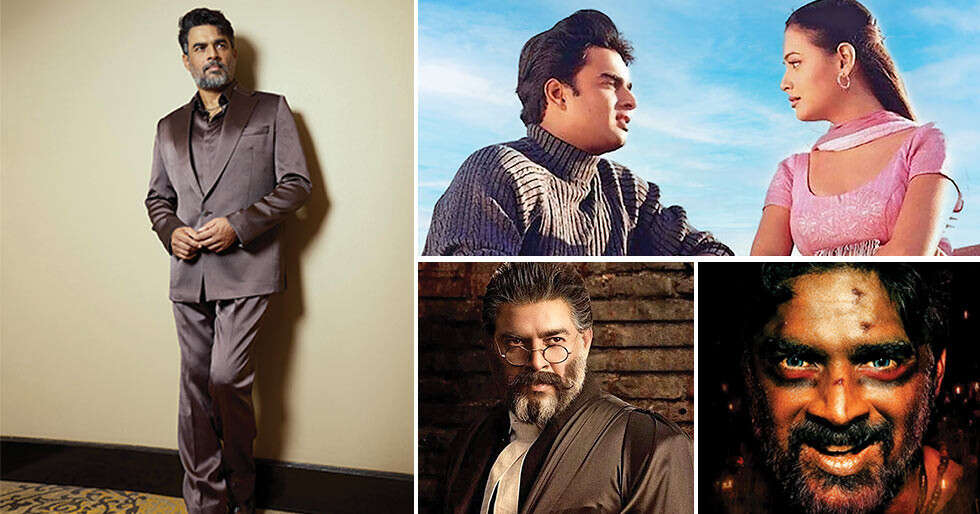I’m at the Dharma office, nursing my second coffee, waiting for him. He walks in casually, green T-shirt, jeans, and a smile that reaches his eyes. There’s something about R. Madhavan that instantly puts you at ease. No airs, no starry affectations. Just a quiet warmth, a gentle voice, and eyes that always seem to be hiding a joke. His latest release, Kesari: Chapter 2, may not set the box office on fire, but Madhavan insists he’s in the most exciting phase of his career. And I agree. From the moment he walks in, I know this won’t be a routine interview. Effortlessly warm, disarmingly funny, and entirely at ease, he has me laughing more than taking notes. When I hesitantly ask for a photo, discouraged, of course, from playing the fan, he doesn’t miss a beat. “I’d be offended if you don’t take one,” he grins. I’m floored. He plays the affable hero, the layered villain, and everything in between, yet he retains the wide-eyed enthusiasm of someone new to the game. With Kesari: Chapter 2, a roster of edgy filmmakers keen to work with him, and a slate of fresh roles lined up, Madhavan seems more energised than ever.
We sit down to talk and the conversation flows freely. He’s at his candid best as I ask:
You played a fictional character in Kesari: Chapter 2. What references did you draw upon to make your portrayal as authentic as possible?
Whenever I take on characters like this, I always try to understand the purpose behind why they’ve been written.
I look for the soul behind their intentions. When I met Karan Singh Tyagi, the director, he already had a fantastic story and script in place. But even before we began shooting, he got me deeply involved in the historical context. The fact that my character was fictional, an amalgamation of ten real lawyers who actually fought the case, was absolutely fascinating. I kept wondering: what drives this man? What makes him tick? On the day of the shoot, I told Karan, “I’ve got it!” This man isn’t concerned about the British. He’s not fighting for them, nor is he defending General Dyer. In fact, he doesn’t even care about Dyer, he treats him like a child. He’s one of those Indians who couldn’t care less about British rule or their so-called royalty. He’s completely dismissive of them. What I realised was that his sole motivation is a personal one. He feels betrayed by Sankaran Nair and is determined to bring him down, whatever the cost. His only objective is to defame Sankaran, regardless of the consequences.
As an experienced actor, how is it working with a first-time director?
There are two types of first-time directors. One with an extraordinary story but lack experience in telling that story. They are enamored by what they have learnt from their mentors. So they’re trying to make a movie that helps them get a pat on the back from their mentors but might not be relevant to the audience. So you have to mollycoddle them and make them see your point of view because of your experience. The second type of first-time directors are those who have come there with a passion to tell a story. They are not just directors. They have a vision, passion, they know cinema and they know how to tell the story. So you completely surrender to such kind of first-timers. You don’t get in their way of creativity. Karan is of the second kind. He isn’t just a director who has assisted four other directors and wants their validation. He doesn’t have a mentor. He’s a law graduate from Harvard. So as an actor, I surrendered to that and went along with his vision.
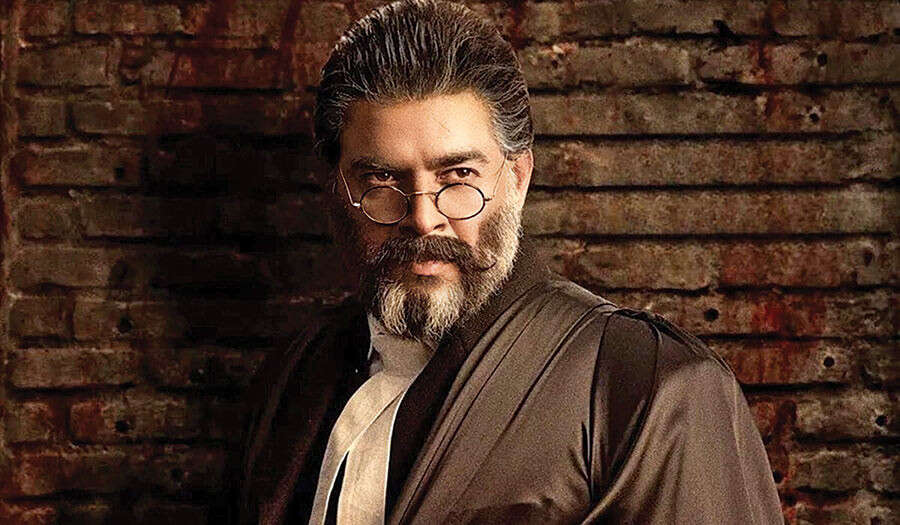
Your experience didn’t come in the way of your surrender?
For a seasoned actor to let go completely is difficult. Once you recognise what type of director they are, you should forget about your experience and get out of their way. Just be what they want you to become. Be part of that vision. Karan was spot-on. He knew the difficulties that lay ahead. I’ve never seen the audience react to a movie like I have seen them react to in Kesari 2. In 3 Idiots, they were laughing and whistling but in Kesari: Chapter 2, they are with the hero. They were screaming and clapping and waited till the last frame before getting up.
Is playing grey-shaded characters becoming your thing now?
Negativity of the character depends on the situation. In Breathe, I am supposed to do what a father is supposed to do. Similarly in Shaitaan, he is a negative character but I never took his villainous nature seriously. The Gujarati gentleman (Hiten Kumar) who played my role in the original (Vash) is a fabulous actor. He took playing the villain seriously. He gave all the negative connotations to it. But my logic was he’s done this hundred and seven times before. He has kidnapped a hundred and seven girls in front of their parents. He knows all the tricks that the parents will do to get their daughter back from his clutches. So he was not worried that the parents were going to stop him. He doesn’t even hit Ajay (Devgn) or Jyothika. He knows they can’t do anything. He’s a frightening character who’s not afraid of the outcome or the opposition. I’m not playing a cliched villain. Once I found the truth about my character, the rest became easy.
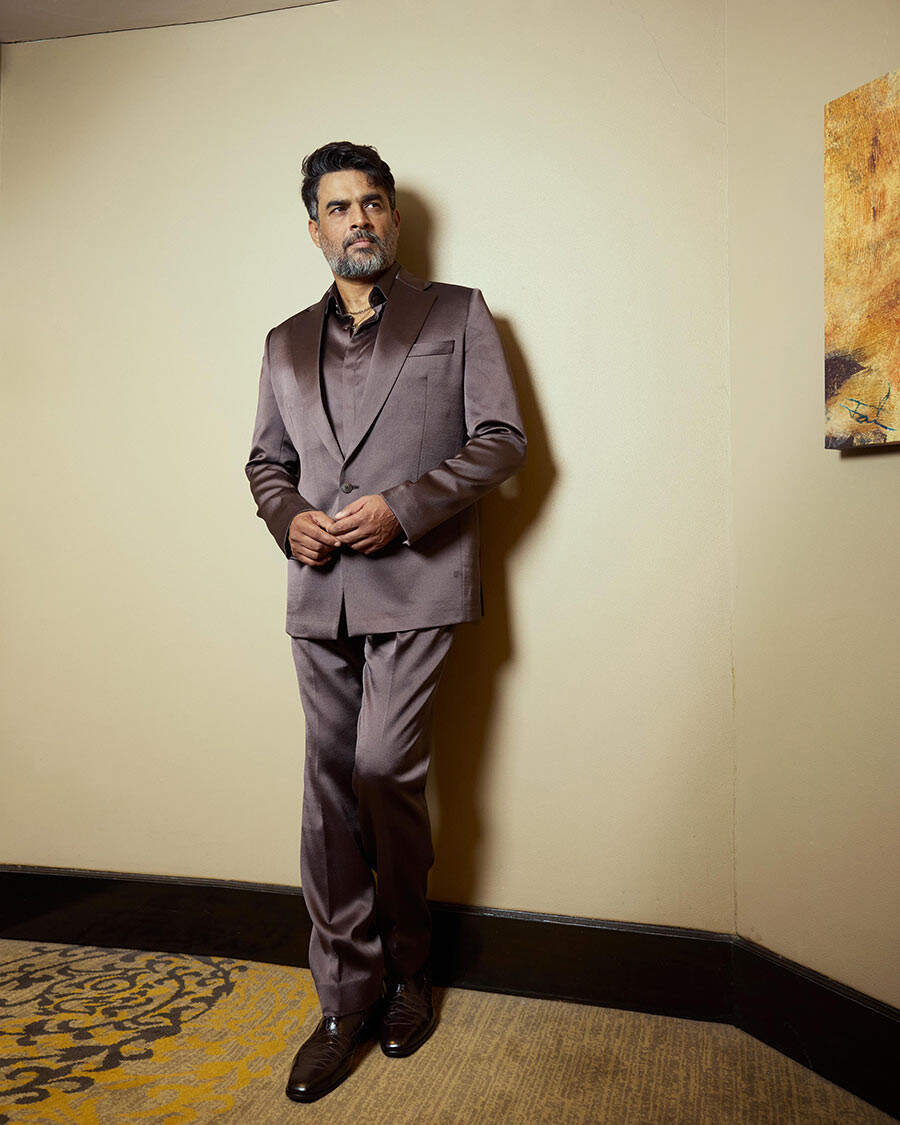
We see you sharing equal space with Ajay Devgn in Shaitaan and Akshay Kumar in Kesari: Chapter 2. How secure are you as an actor to share the spotlight with others?
I’ve never worried about sharing the spotlight. I’ve done multistarrers like 3 Idiots, Rang De Basanti or Aaytha Ezhuthu earlier. I’ve done Tanu Weds Manu or Saala Khadoos where female leads had much more to do than I did. So my position in films and my stardom has never been taken seriously by me. It’s not just on screen. I don’t take my stardom seriously off screen as well. I don’t walk around with an entourage. I don’t have to be seen in airport looks all the time. I don’t feel insecure if people don’t comment on my outfits. I keep changing my look so people barely recognise me. All this also helps me gain access to the people I want to talk to. It helps me speak to people who are not seeing me just as an actor or a star. I get to have conversations with people sitting beside me on a bus, plane or a train. This also helps me understand a lot more about where I need to go with my acting career, as opposed to being just within the industry and taking myself seriously.
So you don’t like being a celebrity?
The thing is, I am not thinking that brands will come and sign me, or I’ll make a lot of money out of the brands. But they still do without me being a star icon. My PR department is pissed off at me. They are sad that I don’t indulge in airport spotting or attend events. I don’t conduct photoshoots for myself. I’m 55. I need to do as many characters as I can, which are age-appropriate, before I go to the senior roles.
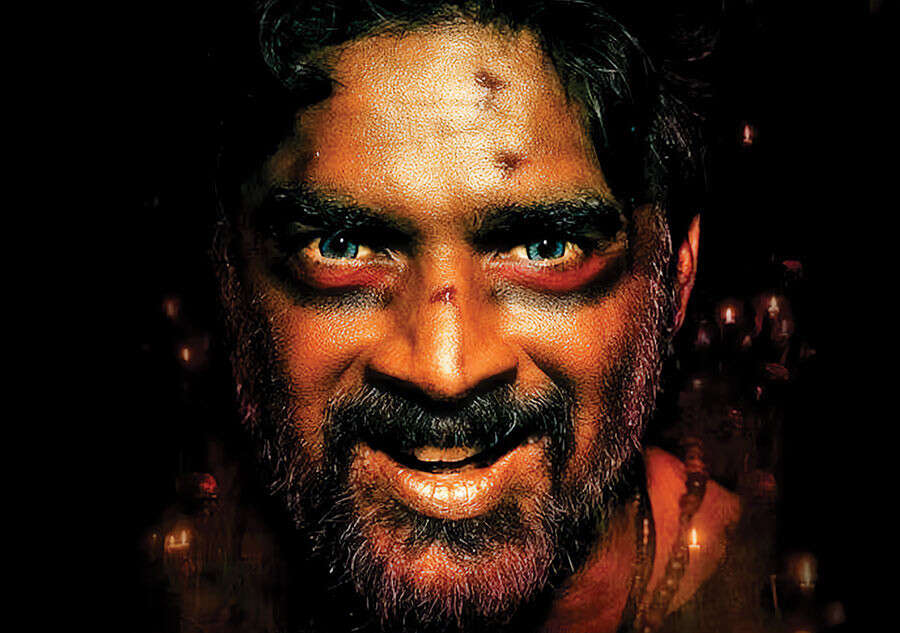
You take your time saying yes to projects…
It took me 14 years to find the kind of directors and subjects I want to work on. I knew that the younger directors would need someone like me and I would also need them in order to be relevant to the new generation. Believe it or not, all my blockbusters have been with either first time or second-time directors. From Rehnaa Hai Terre Dil Mein to Kesari: Chapter 2, Decoupled and The Railway Men, Breathe and Rang De Basanti, all have been with first time directors. For Tanu Weds Manu, it was with a second time director. These guys did not come with a big shroud on them of being successful directors. Except for Mani Ratnam and a few others, all my biggest affiliates have been with new directors. So it took me 14 years to send out the kind of signal saying I am that evolved guy who understands your new vision. Put me on top of your list. My next project, Aap Jaisa Koi, is with a second time director. The one after that is also with a second time director again. Then there is Dhurandhar. Then there is one with a lady director titled Bridge. She’s directing her first film.
Are we going to see you in Kesari: Chapter 3?
It’s too premature to tell. Kesari is a legacy franchise. They will do justice with the story first then see who fits into the character. I would love to work with the entire team all over again, but it’s rather foolish of me to expect that to happen just because of the relationship I share with them.
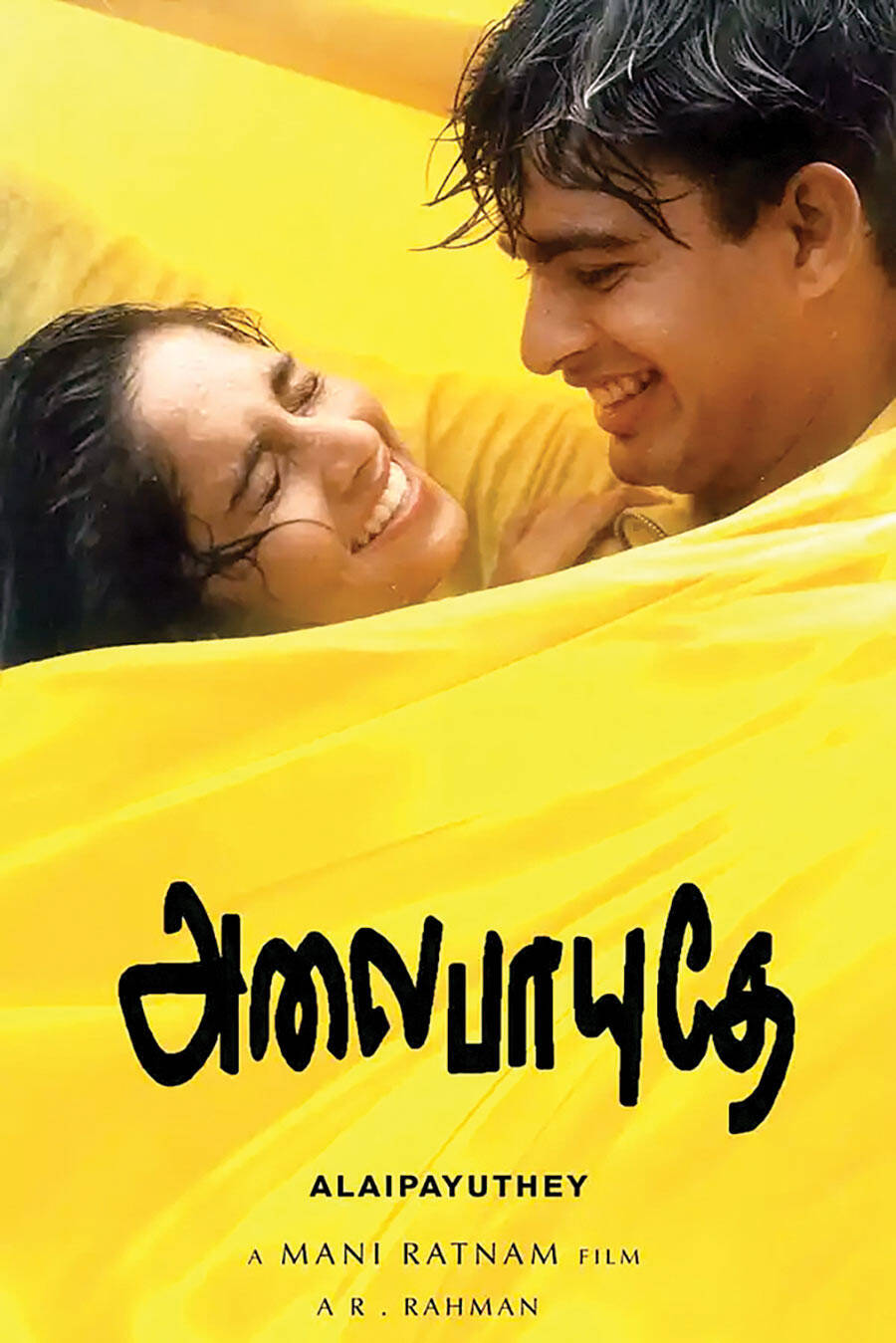
We’re intrigued about Aap Jaisa Koi…
It’s a story of an older person, who falls in love for the first time. This girl happens to be much younger than him. How does romance work out in today’s world between these cynical age groups? How does it work out between GenZs and Gen Alphas? It’s an interesting story. I’m happy because it’s age appropriate. I’m not trying to play a young hero. I’m playing my age. I think it’s come out really well. So I’m keeping my fingers crossed.
After Rehnaa Hai Terre Dil Mein‘s re-release, what are the other movies of yours you would want to witness on
the big screen again?
I would love it if Ramji Londonwaley gets a re-release. I would also like Alai Payuthey to re-release. It is the original of Saathiya

